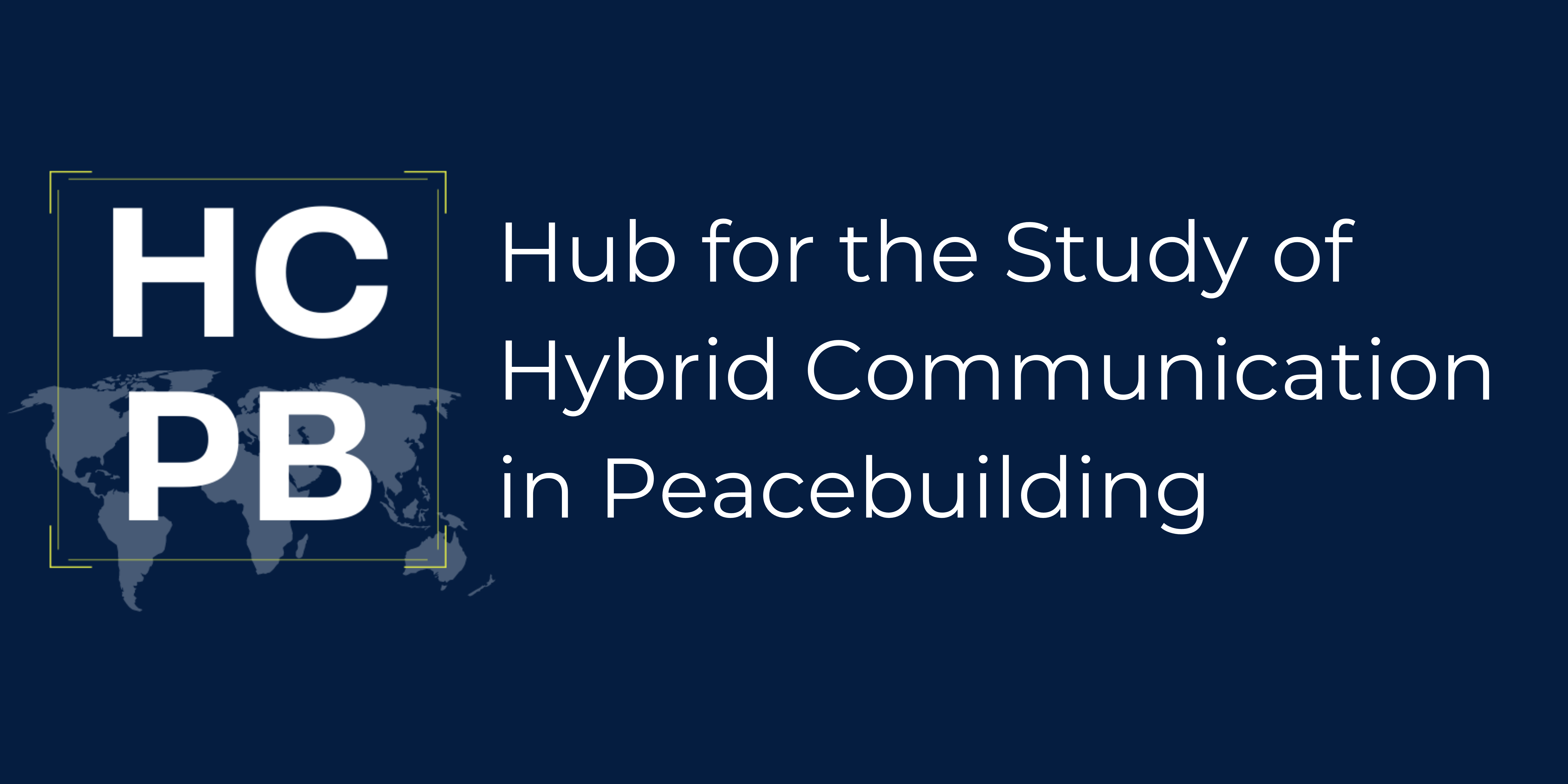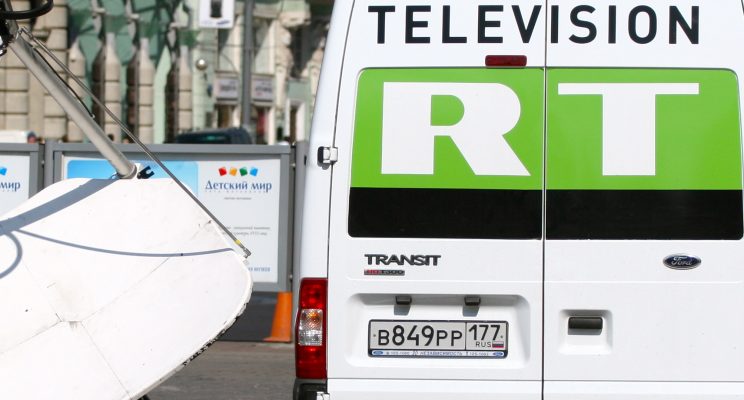By Ilya Yablokov
The idea to write a book on RT (Russia Today as the channel was called before 2010) came in 2013 when the channel was growing as an international broadcaster interested in fringe opinions and alternative facts. This was before the catch phrase ‘fake news’ was added to the daily vocabulary of both average news consumers and academics. A decade ago, RT pioneered the usage of controversial opinions (packaged as the manifestation of the freedom of speech), alternative facts, conspiracy theories and unverified claims as part of the news agenda to damage political opponents of the Kremlin on both sides of the Atlantic ocean. The reason to choose to circulate conspiracy theories is not surprising: they help undermine the legitimacy of political and social actors and spread rapidly thanks to global communications, thus affecting and shaping opinions and biases of millions of people around the world. In this way, RT represents an excellent case for the investigation of how global communication technologies influence the development and dissemination of conspiracy theories and what it means for conflict resolution when information can’t be kept within state borders or linguistic limitations.
RT’s evolution began with a regional conflict in Georgia in 2008. The channel was launched in 2005 as a traditional soft power tool to promote Russian culture and showed its inability to defend Russia’s geopolitical interests during a conflict where pro-Russian forces annexed two Georgian regions: South Ossetia and Abkhazia. Most of the global TV channels covered this conflict from the Georgian perspective calling the Russian military forces ‘the occupants’. The Kremlin lost the global battle of words and changed the approach. Instead, the channel was rebranded as RT and started an aggressive campaign of criticism of big business, governments, global media holdings and US military expansionism.
 When watching RT an attentive viewer first pays attention to a recurrence of populist utterances. This is politically beneficial: the purpose of RT is to pre-curate favourable opinions into the news agenda whilst keeping itself distant from what the guests say. These guests can be affiliated journalists, no-name bloggers or retired intelligence officers. RT says that its mission is to provide a forum to a multitude of voices – some of which are often ignored by ‘mainstream media’. By posing as an alternative to the ‘mainstream media’, RT not only brands itself to attract potential viewers and followers of such content, it also seeks to show that the ethos of traditional media is obsolete and the road is open for all sorts of non-conventional approaches to news and current affairs.
When watching RT an attentive viewer first pays attention to a recurrence of populist utterances. This is politically beneficial: the purpose of RT is to pre-curate favourable opinions into the news agenda whilst keeping itself distant from what the guests say. These guests can be affiliated journalists, no-name bloggers or retired intelligence officers. RT says that its mission is to provide a forum to a multitude of voices – some of which are often ignored by ‘mainstream media’. By posing as an alternative to the ‘mainstream media’, RT not only brands itself to attract potential viewers and followers of such content, it also seeks to show that the ethos of traditional media is obsolete and the road is open for all sorts of non-conventional approaches to news and current affairs.
RT’s staff is tech-savvy when it comes to airing unverified claims, especially when the country where RT broadcasts has legislative limitations for unverified news. During the Skripal affair in 2018, when a former Russian double agent and his daughter were poisoned by a bioweapon, RT was desperate to find the holes in the narrative developed by the British government and intelligence all by simultaneously avoiding a breach of Ofcom regulations and risking the loss of its broadcasting license. RT’s staff covered multiple conspiracy theories accusing the UK government, investigative journalists, the military and scientists via talk shows, op-ed pieces and news reports. Most of these stories were mutually conflicting, but the goal was, as we show in the book, to chip away at the credibility of the official accounts that had been released to the public about the poisonings. When it was difficult to find the solo, convincing voice to spread favourable views on the Skripal poisoning, RT used social media posts to create content for their news stories and attracted a disproportionate amount of airing time for these stories. RT also used low access to public information about the investigation to cast a doubt on the UK government’s actions and shared conspiratorial tweets by Russian officials to provide weight to the questionable allegations against the UK officials’ line.
Usually, an uninformed viewer will not notice that RT is a Russian-funded television channel. RT as a brand is slick enough to have plenty of attention on any continent. And indeed, RT engages in the aggressive pro-Russian news making only when the Kremlin’s reputation is at stake. But in fact, as we show in our study, RT is a product of, and a savvy player in, a broader global media environment. This context for RT’s evolution is vital as in today’s world communication is not a one-way process. On the contrary, news coverage is a product of the interactions of journalists, host platforms and audiences with that content. All of these elements contribute to the ways in which populist messages are constructed and developed. Together, they work to give conspiratorial online content a comparative circulatory advantage. Positioning itself as an outside voice, RT chose conspiracy theories as its key content. They have become, in a way, a part of RT’s identity.
Conspiracy theories help discussing the complicated reality around us, the world that lacks transparency and is full of inequality and injustice. At times, as Peter Knight notes, conspiracy theories can be onto something, but 9 out of 10 times conspiracy theory will be very far from how things really developed. For RT presenters and guests conspiracy theorizing is the chance to show themselves as champions of freedom of speech. Hence, the motto: ‘You can call me a conspiracy theorist, but I do my own research and just ask questions!’ is an opening for an unrestrained speech and gives the floor to further, even more bizarre speculations that spread via the variety of media platforms available.
RT’s management is happy when there is a chance to air such theories and muddy the waters of serious discussions. At the start of the global pandemic in March 2020, while many US media were broadcasting cautious messages about self-isolation and social distancing, RT’s hosts were actively spreading false narratives about the tiny danger that COVID-19 presents for humans. They laughed at the ‘mainstream media’ and called the pandemic the type of stories that the media love. Within a couple of weeks, as countries were closing borders around the world, including Russia, the hosts changed their approach and called for social distancing in their programmes. Nevertheless, the op-ed section of RT’s website still accumulates hundreds of pieces written by covid-dissidents that consider the disease and the vaccination programme the ‘health pass tyranny’ of the globalist government.
Perhaps, the biggest question for policy makers and experts is: what can be done with the conspiratorial narratives pushed by RT that decrease public safety and trust in expert knowledge? First, RT might be a pioneer of some broadcasting tactics but it is not unique: legislative measures on reporting falsehoods seem to be effective. These measures should be applied consistently and treat every media equally. The market incentives for clickable content mean that policy responses must be addressed at the whole (multiplatform) environment, rather than focussed on one actor within it. Such regulations must encompass statutory duties of broadcast media and social media platforms, a clarification of the responsibilities of content producers versus hosts, and cross-sector collaboration, plus transnational intergovernmental coordination of penalties for non-compliance.
Second, most of the conspiracy theories spread online and offline because people tend to overestimate their critical thinking abilities. A variety of media literacy programmes should target different social and age groups to foster understanding of the complexity of the digital and global communication environment.
Third, media like RT benefit from the conflicts within society – corruption, infringements committed by political elites, lack of political transparency and socio-economic polarization – and here lies the hardest part. Conspiracy theories will arise inevitably as part of the socio-economic context in every society, and there will always be the media who will try to promote such views for their own benefit. It is vital to focus on the necessary long-term goal to safeguard political and media institutions and protect citizens’ capacity to productively engage with them.

